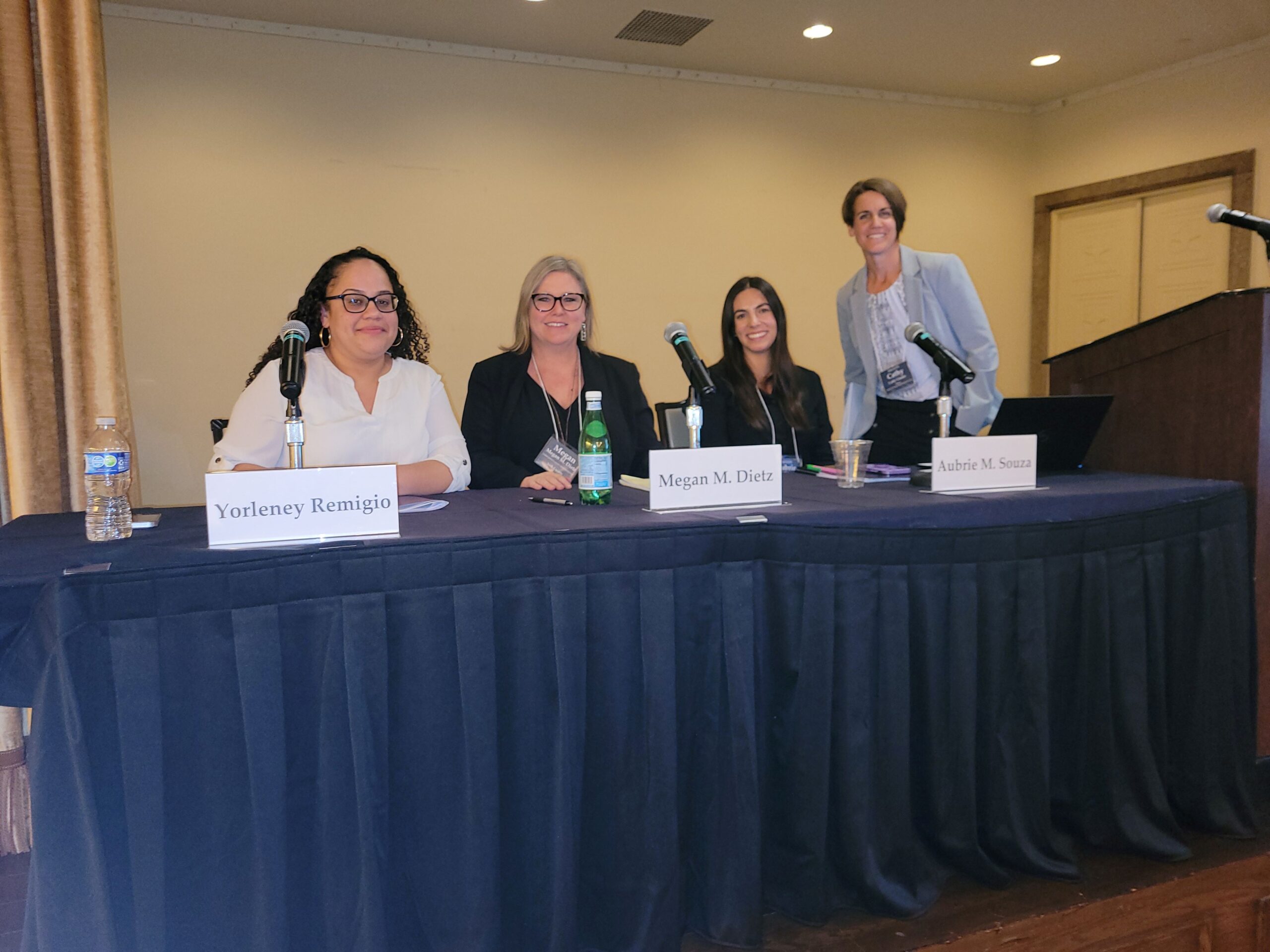– by Valerie Wilson, L ’25
In the Access to Justice Clinic, our team of Kiko Galpin, Jackie Jaques, Lara Ormiston and Valerie Wilson worked this spring with Haki na Sheria, a Kenyan NGO “dedicated to ending the discrimination and promoting the rights of marginalized communities in Northern Kenya.” Our task was to produce a report about the impact of Kenya’s “Maisha Namba” digital ID program on Kenyan Somalis and other groups that struggle with access to identity documents because of discrimination and marginalization in Kenyan society. (The clinic was co-taught this semester by Laura Bingham of the Institute for Law, Innovation and Technology (iLIT) and Len Rieser of the Sheller Center.)
Haki na Sheria has done extensive community education and legal empowerment work with the Kenyan Somali community in Garissa County, a rural area in Kenya’s northeast. Haki na Sheria advocates to promote the right to a nationality and to prevent statelessness, and provides accompaniment for members of the Kenyan Somali community who are applying for national identity cards, which provide proof of nationality and are issued to Kenyans from age 18.
In Kenya, these national identity cards are required to work, pay school fees, and attend university. But obtaining an identity card is difficult for the people Haki na Sheria works with because of a complex practice called “vetting,” in which members of specific communities must undergo extensive security checks and heightened scrutiny to confirm their citizenship (which should be established from birth) and acquire the all-important national ID card.
After years of efforts by Haki na Sheria and other civil society groups to eliminate vetting, the practice still exists, and the Kenyan government’s decision to adopt a digital ID system has created even more uncertainty for this community and poses serious risks to their future financial, social and political inclusion. In 2020 and 2021, Haki na Sheria, along with other civil society organizations, successfully challenged a previous effort to implement digital ID (“Huduma Namba”) in the Kenyan courts, on the grounds that the project lacked an adequate legal framework to address privacy and discrimination risks. However, when the current government came into power in 2023, it announced another digital ID program under a different name — Maisha Namba — without engaging in the necessary legal and policy reforms to protect the rights of the Kenyan Somalis, other vulnerable communities, and the public in general.
When we started this project, a legal challenge to the Maisha Namba system had temporarily stalled the project through an injunction, and we therefore approached problems with the system from a theoretical standpoint. But in February 2024, the Kenyan High Court lifted the injunction on Maisha Namba’s implementation and the system began to move forward with the issuance of new cards. Our focus shifted to include current logistical and administrative problems with the actual implementation of the system on the ground. We decided to structure our report around the UNDP Digital ID Model Governance Framework, which assesses digital ID systems based on multiple dimensions of human rights.
We conducted a literature review and interviewed community members, paralegals, and government officials who have dealt with the current ID systems and application processes in Garissa County. In the end, we were able to produce a comprehensive account of the human rights risks of digital ID tailored to the specific experiences and circumstances of the Kenyan Somali community and similarly situated groups that are forced to undergo discriminatory vetting to access identity documents proving they are Kenyan.
Our report will be the first that we know of to apply the UNDP Model Governance Framework in practice, and to provide an in-depth discussion of the impact that the Maisha Namba system will have on the Kenyan Somali community. We are eager to see how this project develops in the Advanced Access to Justice Clinic in the Fall 2024 semester. We also hope that our report spurs more researchers to study the effects of digital identity systems and other forms of digital public infrastructure on marginalized groups.

